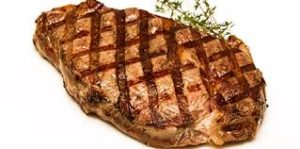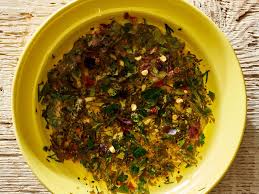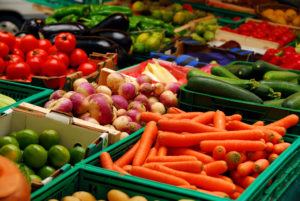Ah, Summer. In Canada, Summer is a celebration of warm weather, warm water, outdoor-cooked foods, Nature, and well, life. Food is central to celebrating in our culture. Barbecuing is very popular, partly because it doesn’t add heat to your home and well, because barbecued food tastes sooo good! But, it is not without risk. Follow these tips and learn why they are important:
 Hamburgers: Forget the trendy ‘tartare’ or ‘rare’ style patties popular in some U.S. restaurants and homes. American-raised meat is subjected to irradiation, which kills pathogenic bacteria like e.coli 0157:H7—the organism common to ground meat and responsible for hemorrhagic colitis, kidney failure and death in many who consume it. However, so far the Canadian government has not permitted irradiation of meats—only root vegetables, wheat and commercially-used spices. (This conservative approach has its reasons, as there are many concerns about radiating our food supply.) Raw, ground, conventionally raised meat needs to be cooked until it is BROWN (indicating well done). Rare ground is just not worth the risk!
Hamburgers: Forget the trendy ‘tartare’ or ‘rare’ style patties popular in some U.S. restaurants and homes. American-raised meat is subjected to irradiation, which kills pathogenic bacteria like e.coli 0157:H7—the organism common to ground meat and responsible for hemorrhagic colitis, kidney failure and death in many who consume it. However, so far the Canadian government has not permitted irradiation of meats—only root vegetables, wheat and commercially-used spices. (This conservative approach has its reasons, as there are many concerns about radiating our food supply.) Raw, ground, conventionally raised meat needs to be cooked until it is BROWN (indicating well done). Rare ground is just not worth the risk!
 Steaks: The thought of a big, juicy steak is enough to make many salivate. How do you like yours done? What if I told you that the research has shown that well-done meats are much higher sources of carcinogens? When meat ‘chars’, it forms polycyclic aromatic hydrocarbons (PAHs), one of which is benzopyrene. In fact, one study showed women who regularly consumed their meat ‘well done’ had a higher incidence of breast cancer. So, outside of ground meat, the better way to consume your beef is rare to medium-rare.
Steaks: The thought of a big, juicy steak is enough to make many salivate. How do you like yours done? What if I told you that the research has shown that well-done meats are much higher sources of carcinogens? When meat ‘chars’, it forms polycyclic aromatic hydrocarbons (PAHs), one of which is benzopyrene. In fact, one study showed women who regularly consumed their meat ‘well done’ had a higher incidence of breast cancer. So, outside of ground meat, the better way to consume your beef is rare to medium-rare.
Before you get too discouraged about your favourite barbecue foods, here are a couple of ways to reduce your risk of infection and/or cancer at the barbecue:
 1. Marinate your meats beforehand. Studies have shown that the marination process somehow reduces the formation of the PAHs. Now, this excludes the use of sugary sauces, which turn barbecue meat to charcoal. Use garlic, lime juice, and spices to marinate your meats, be they poultry, pork, seafood, beef or other.
1. Marinate your meats beforehand. Studies have shown that the marination process somehow reduces the formation of the PAHs. Now, this excludes the use of sugary sauces, which turn barbecue meat to charcoal. Use garlic, lime juice, and spices to marinate your meats, be they poultry, pork, seafood, beef or other.
2. Accompany your meat dishes with large amounts of anti-oxidant rich vegetables. Antioxidants protect cells from carcinogenic changes by neutralizing some of the chemicals that form when food is burned (grilled). Good choices include tomatoes, peppers of different colours, broccoli, beets, and purple onions. Although barbecued vegetables on skewers taste great, be sure not to burn them. Flavour them at the table. Or, steam them separately in the kitchen. Another idea is to use foil to protect them on the barbecue. If you do use foil, do not add acidic seaso nings like vinegar, tomato sauce or lemon until after they have been removed from the foil (to prevent leaching of aluminum and tin into the food). Not only are an assortment of vegetables colourful, anti-oxidant and tasty, they provide the fiber that keeps toxins moving through and out of our bodies.
nings like vinegar, tomato sauce or lemon until after they have been removed from the foil (to prevent leaching of aluminum and tin into the food). Not only are an assortment of vegetables colourful, anti-oxidant and tasty, they provide the fiber that keeps toxins moving through and out of our bodies.
Of course, everything in moderation is a good way to live. Alternate your barbecue meals with meal-sized salads, filled with nuts, seeds, beans, and an assortment of fruits and vegetables for a truly cooling experience.
Enjoy your summer!
